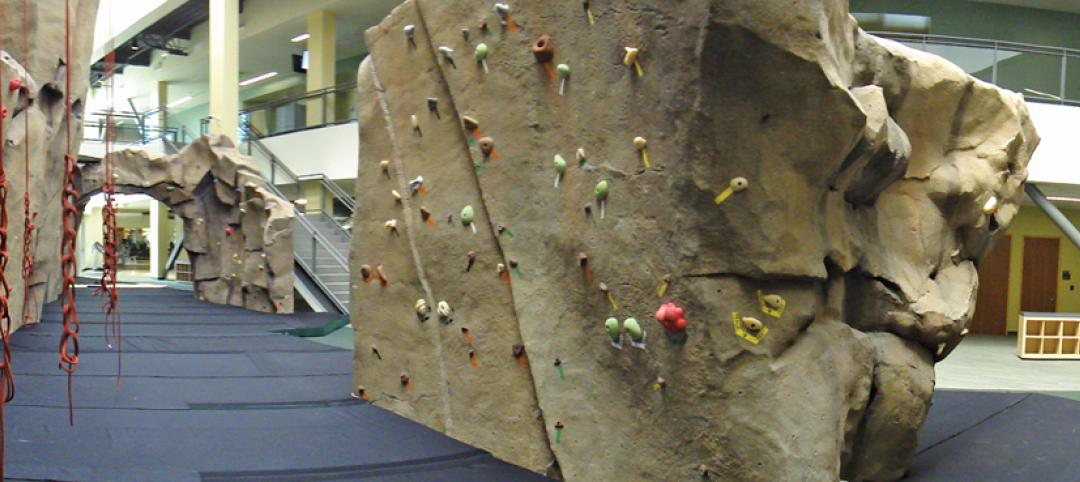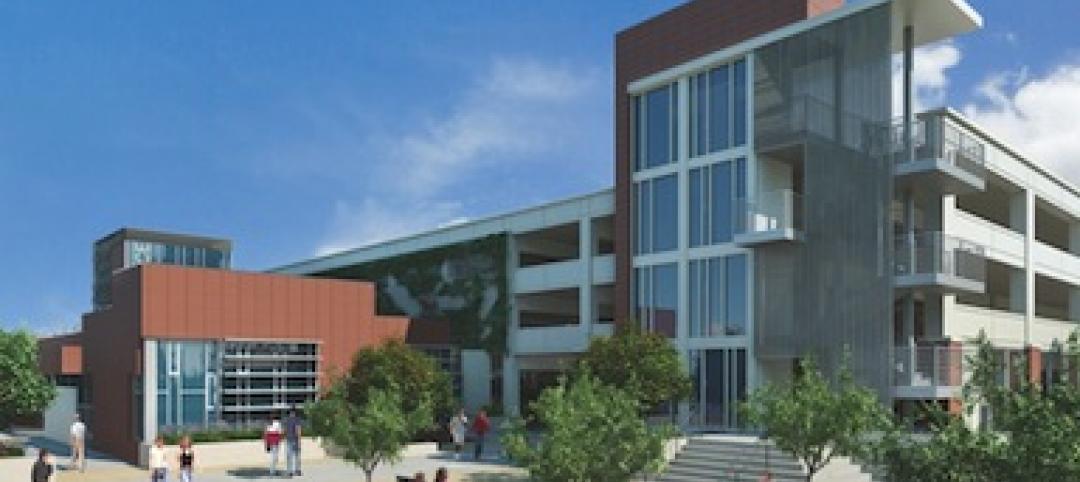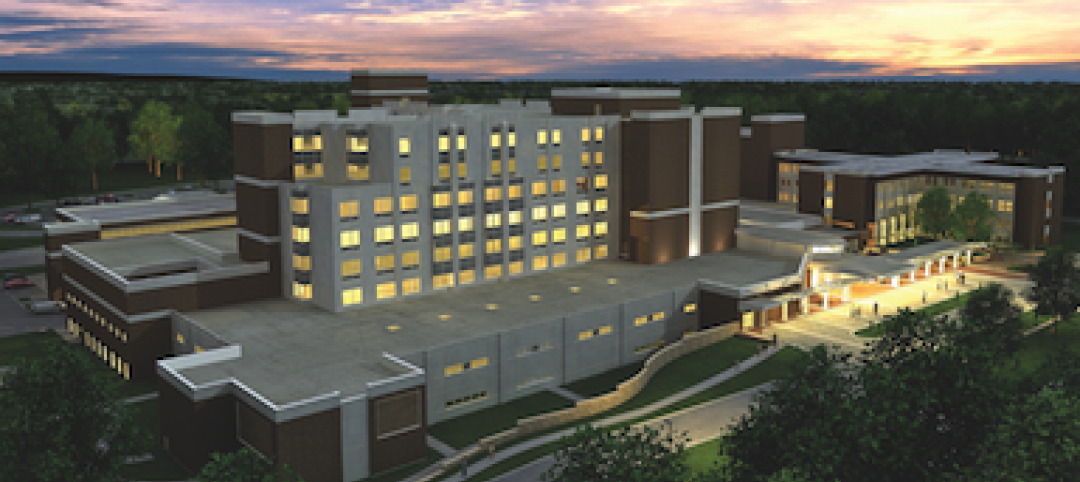The architecture programs at Parsons The New School for Design and Clemson University have been selected as 2014 NCARB Award recipients for developing innovative curricula that merge practice and education.
The National Council of Architectural Registration Boards (NCARB) announced the recipients at the Association of Collegiate Schools of Architecture (ACSA) Administrators Conference.
The NCARB Award supports initiatives at architectural schools that will have a long-term impact on students, faculty, and curriculum. It is designed to help schools implement new programs that bridge the gap between practice and education in a classroom, seminar, or studio setting.
“The award honors innovative ways for weaving practice and academy together to address real-world architecture challenges,” said NCARB CEO Michael J. Armstrong. “The winning proposals for 2014 explore new paradigms of practice and move students from the theoretical to applied practices working with licensed practitioners.”
2014 NCARB Award Recipients
Program: Clemson University, School of Architecture—Clemson, S.C.
Proposal: “Graduate Program in Architecture + Health”
Total Award: $30,000
The mission of the project is to advance health care facility design through collaboration among architects, academia and members of the healthcare industry. The primary outcome will be to expose a cohort of architecture and health (A+H) Master of Architecture students—through three integrated courses within the A+H Curriculum—to the challenges of designing health care settings that support the delivery of high quality, cost effective, culturally relevant health care for medically under-served populations.
“This project’s social capacity is far-reaching,” said Wendy Ornelas, FAIA, associate dean and professor at Kansas State University’s College of Architecture, Planning & Design, and the chair of the 2014 NCARB Award Jury. “It creates a road map for healthcare but is also a framework that is portable across all project types."
Program: Parsons The New School for Design, School of Constructed Environments—New York
Proposal: “Student-Practitioner Partnerships in Building Performance Evaluation”
Total Award: $20,232
While there is increased emphasis on sustainability, instruction on performance measurement is lacking. The proposal addresses a new and critical opportunity for architecture students to improve the environmental performance of buildings through measurement. The project involves purchasing new tools to enable students, during seven-week assignments, to work with practitioners to evaluate the real-world energy performance of buildings. Equipment purchased with the Award includes environmental meters for the measurement of temperature, humidity, air velocity, light level, sound pressure, carbon dioxide, carbon monoxide, and other performance factors.
“Many of the buildings are LEED or net-zero buildings, and this program will provide us with a cadre of information and data on whether or not these buildings are doing what they are supposed to be doing,” Ornelas said.
The 2014 NCARB Award Jury rigorously and impartially evaluated proposals against a published set of criteria. The jury comprised architects and emerging professionals who volunteered extensive time and expertise to fulfill their charge. Led by Wendy Ornelas, FAIA, Manhattan, KS, chair of the 2013 NCARB Award Jury, members included: Michael Archer, Assoc. AIA, Brooklyn, NY; Leticia Canon, AIA, MBA, NCARB, LEED AP BD+C, Dallas, TX; John Ehrig, FAIA, LEED AP, Orlando, FL; Linaea Floden, LEED AP BD+C, Tampa, FL; Emily Forquer, NCARB, Afton, IA; and Stephen Schreiber, FAIA, Amherst, MA. (Award Jury members with any connection or potential conflict of interest abstained from voting on that school’s proposal.)
Since 2001, the Council has supported the integration of practice and education by awarding more than $900,000 to schools through the NCARB Prize (2001-2011) and the NCARB Award (2006-present; known as the NCARB Grant until 2012). These funds have reached 60 schools—representing more than a third of all NAAB-accredited degree programs.
Related Stories
| Sep 16, 2010
Gehry’s Santa Monica Place gets a wave of changes
Omniplan, in association with Jerde Partnership, created an updated design for Santa Monica Place, a shopping mall designed by Frank Gehry in 1980.
| Sep 16, 2010
Green recreation/wellness center targets physical, environmental health
The 151,000-sf recreation and wellness center at California State University’s Sacramento campus, called the WELL (for “wellness, education, leisure, lifestyle”), has a fitness center, café, indoor track, gymnasium, racquetball courts, educational and counseling space, the largest rock climbing wall in the CSU system.
| Sep 13, 2010
Community college police, parking structure targets LEED Platinum
The San Diego Community College District's $1.555 billion construction program continues with groundbreaking for a 6,000-sf police substation and an 828-space, four-story parking structure at San Diego Miramar College.
| Sep 13, 2010
Campus housing fosters community connection
A 600,000-sf complex on the University of Washington's Seattle campus will include four residence halls for 1,650 students and a 100-seat cafe, 8,000-sf grocery store, and conference center with 200-seat auditorium for both student and community use.
| Sep 13, 2010
Second Time Around
A Building Team preserves the historic facade of a Broadway theater en route to creating the first green playhouse on the Great White Way.
| Sep 13, 2010
Palos Community Hospital plans upgrades, expansion
A laboratory, pharmacy, critical care unit, perioperative services, and 192 new patient beds are part of Palos (Ill.) Community Hospital's 617,500-sf expansion and renovation.
| Sep 13, 2010
China's largest single-phase hospital planned for Shanghai
RTKL's Los Angles office is designing the Shanghai Changzheng New Pudong Hospital, which will be the largest new hospital built in China in a single phase.
| Sep 13, 2010
Richmond living/learning complex targets LEED Silver
The 162,000-sf living/learning complex includes a residence hall with 122 units for 459 students with a study center on the ground level and communal and study spaces on each of the residential levels. The project is targeting LEED Silver.















